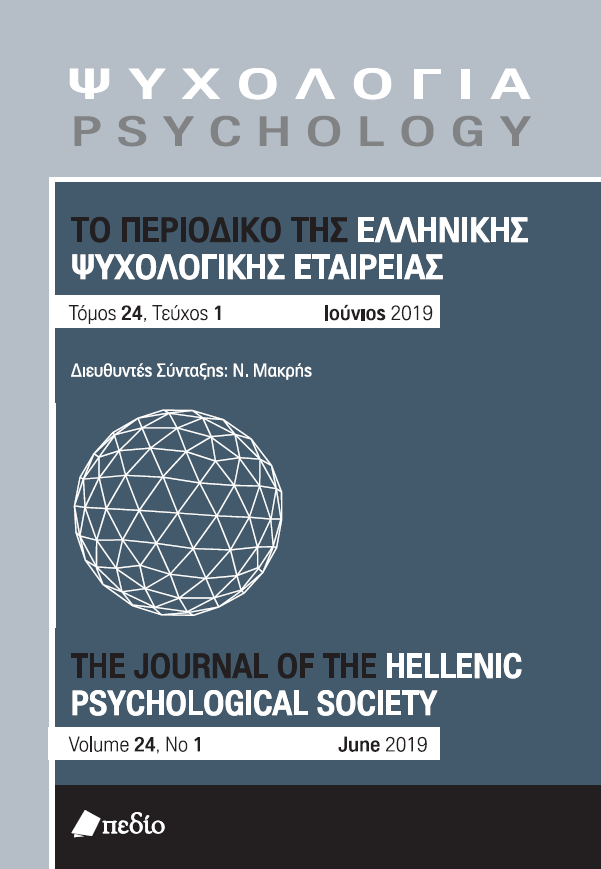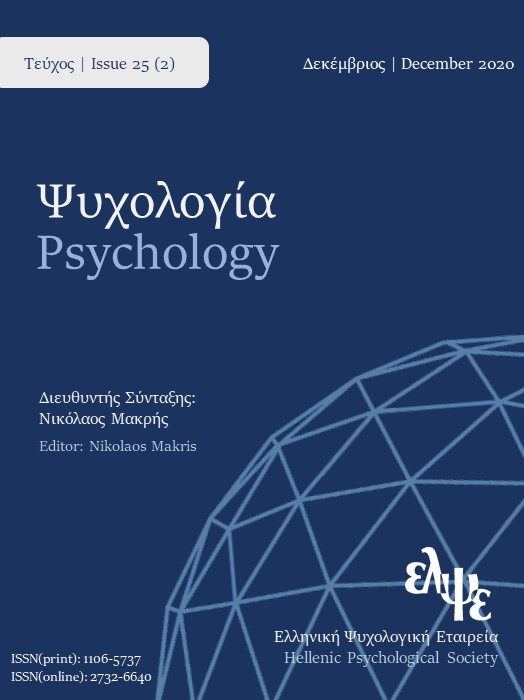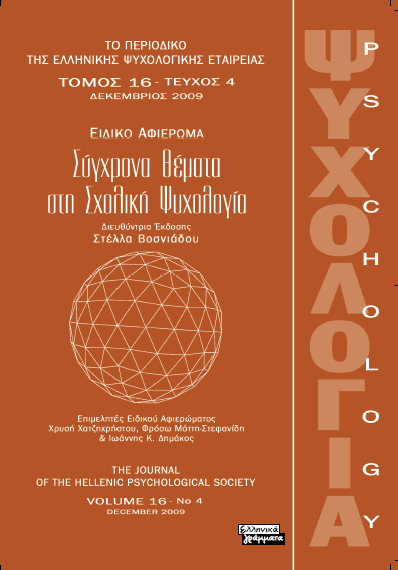Παρουσία του Πατέρα στην Οικογένεια και Αντιλαμβανόμενη Γονική Αποδοχή-Απόρριψη

Περίληψη
Η Θεωρία της Διαπροσωπικής Αποδοχής-Απόρριψης (IPAR Theory), πρόσφατα τροποποιημένη απότη Θεωρία Γονικής Αποδοχής-Απόρριψης (ParentalAcceptance-RejectionTheory (PART), θεωρεί ότι τα παιδιά, διαπολιτισμικά, αντιδρούν με συνεπή τρόπο σε μορφές συμπεριφοράς που αντιλαμβάνονται εκ μέρους των γονέων τους ως «αποδοχή» και ως«απόρριψη».Οι περισσότερες μελέτες δείχνουν ότι όσο πιο παρόντεςείναι οι πατέρες στις δραστηριότητες και τα καθήκοντα της οικογένειας, τόσο περισσότερο είναι πιθανό τα παιδιά να νιώθουν αποδεκτά από τους γονείς τους(Rohner, 1986). Η συγκεκριμένη μελέτη διερευνά τη σχέση μεταξύ της παρουσίας του πατέρα ως φροντιστή και της αντιλαμβανόμενης αποδοχής-απόρριψης κατά την παιδική ηλικία, μέσω της σύντομης έκδοσης του Ερωτηματολογίου Γονικής Αποδοχής-Απόρριψης/Ελέγχουγια ενήλικες (AdultPARQ/C.Rohner, 2005. Rohner&Khaleque, 2008). Στην έρευνα συμμετείχαν 1117 φοιτητές από διάφορα τμήματα ελληνικών πανεπιστημίων στην Αθήνα και στο Σαράγιεβο της Βοσνίας-Ερζεγοβίνης. Τα ευρήματα των πολυμεταβλητών αναλύσεων διακύμανσης δείχνουνμια αρκετά ισχυρή σχέση ανάμεσαστην αντιλαμβανόμενημητρική και την πατρική αποδοχήκαι τηφυσική παρουσία του πατέρα στο σπίτι, καθώς και την εμπλοκή του στην ανατροφή του παιδιού.Τα ευρήματα αυτά σχολιάζονται σε σχέση με σχετικές σύγχρονες εμπειρικές μελέτες της διεθνούς βιβλιογραφίας.
Λεπτομέρειες άρθρου
- Πώς να δημιουργήσετε Αναφορές
-
Mrvoljak Theodoropoulou, I., Γκαρή Α., & Μυλωνάς Κ. (2019). Παρουσία του Πατέρα στην Οικογένεια και Αντιλαμβανόμενη Γονική Αποδοχή-Απόρριψη. Ψυχολογία: το περιοδικό της Ελληνικής Ψυχολογικής Εταιρείας, 24(1), 123–137. https://doi.org/10.12681/psy_hps.22390
- Τεύχος
- Τόμ. 24 Αρ. 1 (2019)
- Ενότητα
- ΕΜΠΕΙΡΙΚΕΣ ΕΡΓΑΣΙΕΣ

Αυτή η εργασία είναι αδειοδοτημένη υπό το Creative Commons Attribution-ShareAlike 4.0 International License.
Το περιοδικό ΨΥΧΟΛΟΓΙΑ έχει υιοθετήσει μία πολιτική Platinum open-access. Τα έξοδα υποβολής, επεξεργασίας ή δημοσίευσης των εργασιών καλύπτονται από την Ελληνική Ψυχολογική Εταιρεία. Τα πνευματικά δικαιώματα των δημοσιευμένων εργασιών προστατεύονται από την άδεια 'Creative Commons Attribution-ShareAlike 4.0 International'. Οι Συγγραφείς διατηρούν τα Πνευματικά Δικαιώματα και χορηγούν στο περιοδικό το δικαίωμα της πρώτης δημοσίευσης. Η άδεια αυτή επιτρέπει σε τρίτους, να χρησιμοποιούν την εργασία σε οποιαδήποτε μορφή, με την προϋπόθεση της διατήρησης των διατυπώσεων που προβλέπονται στην άδεια σχετικά με την αναφορά στον αρχικό δημιουργό και την αρχική δημοσίευση στο περιοδικό ΨΥΧΟΛΟΓΙΑ. Επιπλέον, κάθε διανομή της εργασίας οφείλει να γίνεται με τους ίδιους όρους διανομής, δηλαδή με την ίδια άδεια Creative Commons.








